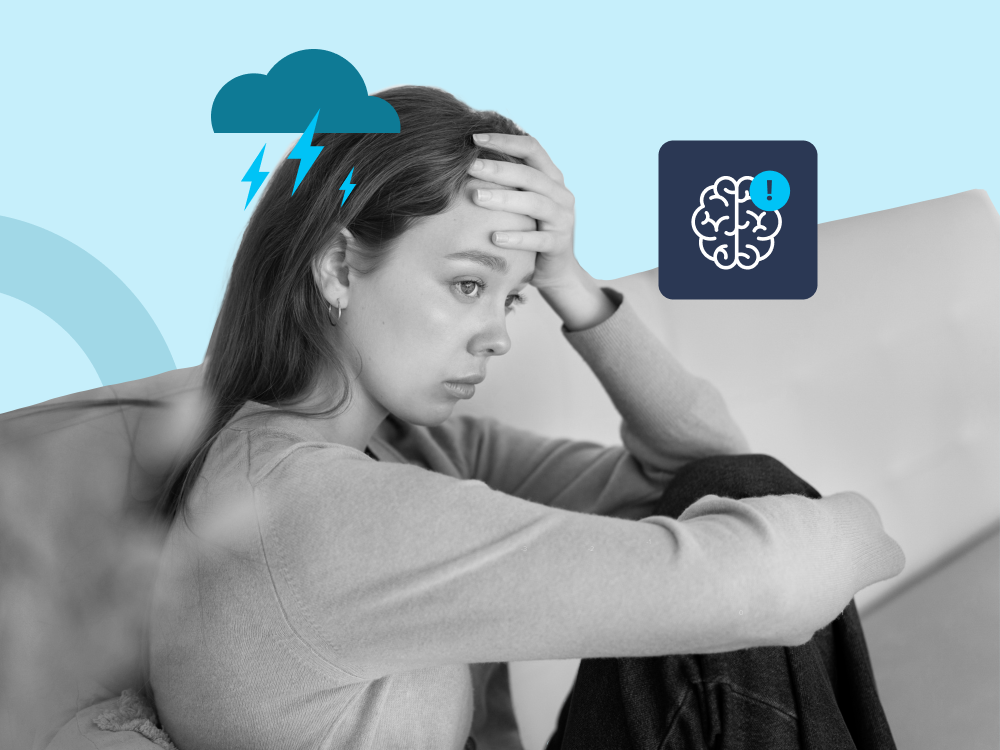
A Guide to Mental Health Assessment Tools for Healthcare Professionals
Mental health professionals, such as psychiatrists and...
Read article
Regularly assess patients’ anxiety symptoms in conjunction with cognitive health and other questionnaire results by administering the GAD-7 questionnaire with Creyos Health.

Assess, monitor, and plan treatments for patients with symptoms of anxiety, all in one platform.

Offer the GAD-7 questionnaire in clinic or remotely through the Creyos Health platform, with efficient automated scoring.

Benchmark and continuously evaluate symptoms with a centralized patient health record that includes longitudinal data.
Anxiety has far-reaching effects on cognition, general health, and adherence to treatment. Almost any healthcare provider—primary care, mental health, or otherwise—can benefit from measuring patients’ symptoms of anxiety in order to better understand patient health and demonstrate the impacts of treatment.
Healthcare providers can use the Creyos digitized GAD-7 questionnaire to support the assessment and treatment of anxiety disorders—plus other mental health questionnaires and cognitive tasks for a full picture of brain health.
Review our guide below for a complete list of standardized questionnaires available in Creyos.

The Generalized Anxiety Disorder Questionnaire (GAD-7) offered through Creyos is a seven-question self-assessment that measures the presence and severity of anxiety symptoms over time. It offers patients and clinicians:

Communicate the purpose of the GAD-7 questionnaire: to provide insights into symptoms of anxiety.
For in-clinic patients, launch the GAD-7 in Creyos and hand the device to the patient to complete the questionnaire. For at-home administration, send the link to the patient to complete remotely.
Access the patient’s results, which are automatically scored in the Creyos platform, and review the findings together.
Put together an action plan based on the patient’s results, and reassess easily and often using a combination of cognitive tasks and questionnaires in the Creyos Health platform.

Anxiety doesn’t just affect mood—it can impact overall health and cognitive function. Two large studies using Creyos Health cognitive tasks suggested a link between self-reported anxiety and short-term memory. When used alongside tasks like Number Ladder, Paired Associates, Spatial Span, and Token Search, the GAD-7 questionnaire can provide a more complete picture of patient health.
Source: Hampshire et al., 2012, and Wild et al., 2018
Research is also finding key associations in clinical contexts. For example, Nicol et al al. (2019) found that brain tumour survivors report lower subjective cognitive function, and GAD-7 scores uniquely account for a significant percentage of that impairment. This study highlighting the complex interplay between direct brain trauma, subjective cognitive complaints, and anxiety.
Another study (Getaneh, Ballard, & Brooker, 2020) found that both anxiety (GAD-7) and depression (PHQ-9) scores were associated with decline in an executive function task among older adults. Healthcare providers must consider multiple mental health metrics when explaining or treating disruptions to cognitive functioning.
The GAD-7 is a screening tool used to measure generalized anxiety disorder symptoms. It is commonly used in many healthcare and research contexts where anxiety can be involved in a diagnosis or as a key outcome measure.
The GAD-7 was developed to overcome issues with traditional anxiety measures, such as taking too long and requiring in-person administration, by streamlining the process with a 7-question, self-administered assessment that is quick and easy to complete.
Research has shown the GAD-7 is small but mighty. As a screening tool, it has strong psychometric properties, despite taking very little time. In a recent paper, Johnson et al. (2019) administered the GAD-7 to a variety of psychiatric patients, and found that it has excellent reliability and validity. It can also be used easily with primary care patients.
When used with a cutoff score of 8 for the purposes of screening or diagnosis of anxiety disorders, it also has good sensitivity and specificity. Furthermore, scores were responsive to changes due to treatments, even in this study's diverse sample.

Mental health professionals, such as psychiatrists and...
Read article

Among mental health concerns in the general population,...
Read article

About half of those who experience a mental illness during...
Read article